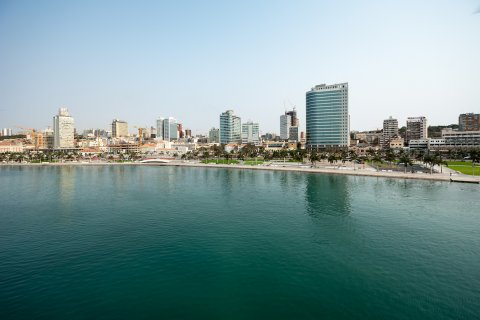According to the final communiqué of the meeting, chaired by the President, João Lourenço, the strategy also aims to contribute to the fight against poverty, increasing the level of employability, diversifying the country's economy and achieving the relevant goals of sustainable development.
"This strategy establishes the vision of the Angolan national policy for 2035, taking into account the need to articulate the Angolan policy in terms of mitigation and adaptation to the impact of climate change", says the document.
The meeting also approved the National System for Monitoring, Reporting and Verification of Climate Policy, an instrument that aims to regulate the flow of data that allow for the preparation and approval of reliable, transparent and comprehensive information on positive or negative effects at the national level, to be submitted under the United Nations Framework Convention on Climate Change.
The aim is to improve reporting mechanisms on national registries and accounting for greenhouse gas emissions.
The National Strategy for Environmental Education for the period 2021-2027 was also approved, for the development and implementation of joint actions in the field of environmental literacy of citizens, with a view to promoting their awareness of environmental issues, as well as their participation in the process. environmental protection, contributing to a change in their lifestyle, including better solid waste management, reducing public funds invested in the basic sanitation system.
The Council of Ministers also approved the Regulation on Green Spaces in Angola, a diploma that establishes norms for the use, construction, restoration and maintenance of all parks, gardens and municipal green spaces, trees and shrubs in them or located in streets, squares, public places, as well as the protection of species designated as being of municipal public interest or located on public or private building land.
The regulation provides for the accountability of all citizens who make improper use of green spaces, destroy or damage installed goods, including plant material and animals, in order to ensure the preservation and enjoyment of these spaces.
Also in the environment sector, the Council of Ministers created the National Climate and Environmental Observatory, which constitutes a guiding body of the State, for the taking of political decisions, for the adaptation to the effects of climate change, in national territory, including the incidence cyclical drought, floods and other effects of climate change.
The composition of the Multisectoral Commission for the National Climate and Environmental Observatory was updated by the Council of Ministers.
This commission has the task of coordinating and controlling the multidisciplinary platform for the flow of statistical data and information related to observations of climate and land, environmental, economic and social indicators, essential for political decision-making related to drought, to use land, water use, forest fires, agriculture, ecology and health.







